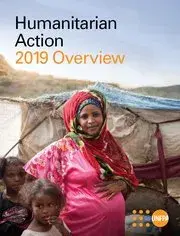"The year 2018 was another challenging period for millions of women and girls whose lives have been upended by conflict, hazards, pandemics and displacement. A staggering 136 million people needed aid, an estimated 34 million of whom were women of reproductive age; 5 million of those women were pregnant. Women do not stop giving birth when a conflict breaks out or a disaster strikes. Whether they live or die in emergencies depends on whether they can access basic sexual and reproductive health services and be protected from harm. We know by now that reproductive health and family planning services, and protection from violence, save lives in emergencies. They are as essential as food and shelter.
Prioritizing life-saving sexual and reproductive health and protection services requires a change of mindset about how we carry out global humanitarian action. One thing is clear: The health and rights of women and girls must no longer be treated as an afterthought. It’s time to put them at the forefront of humanitarian action and cater to their specific needs."
Dr. Natalia Kanem
UNFPA Executive Director


